I recently returned from a month travelling in Italy with my elderly parents, who will soon be 91 and 85-years-of age respectively. It was a privilege to support them on their journey visiting relatives, taking care of some administrative matters and assisting them in a variety of ways. It was also a huge responsibility. It was important that my parents return safely home. We all wanted to avoid traffic mishaps, falls or other health scares. In that, we succeeded and more. We undertook an ambitious trip that took shape day-by-day and week-by-week. We did not plan too extensively, tried to remain flexible and adjusted plans according to how things were going.
Other than a flat tire, luck was on our side. We accomplished a lot. It was wonderful to reconnect with relatives whom we had not seen for eight or more years, and to visit cemeteries to pay our respects to loved ones, recently and not-so-recently departed.
Having been born in Italy, I always find it interesting to return and observe the country; not as a tourist, but as a dual citizen.
Like every country Italy is a nation in transition. It is adapting to global influences, digital technology, immigration and climate change. In some areas change is occurring at a rapid pace, but in others change is very slow.
Still, there are two features that one can count on regardless of everything else: geography and cultural heritage.
Nature
Just by looking at the country's shape, you can see how it stands out from its European neighbours. The peninsula jutting into the Mediterranean is instantly-identifiable: a giant boot with the islands of Sardegna and Sicily close but just out of reach of its foot. Italy's geography offers a limitless variety of features; it’s a land of coasts and mountains. The coastline is calculated to be longer than 7,500 kilometres, while towering mountains in the north (Alps) and all along its spine (Apennines) create untold opportunities for exploration. From meandering river valleys to volcanoes and from arid landscapes to lush rice paddies, Italy's geography is an attraction that constantly surprises.
Varied landscapes are for me a kind of balm. Nature settles me.
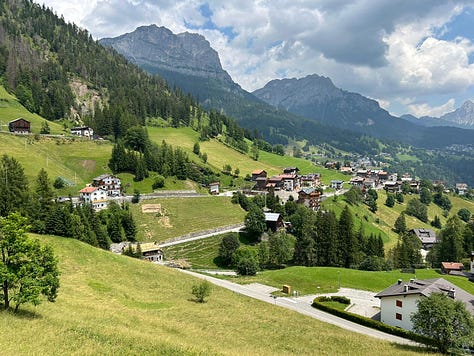
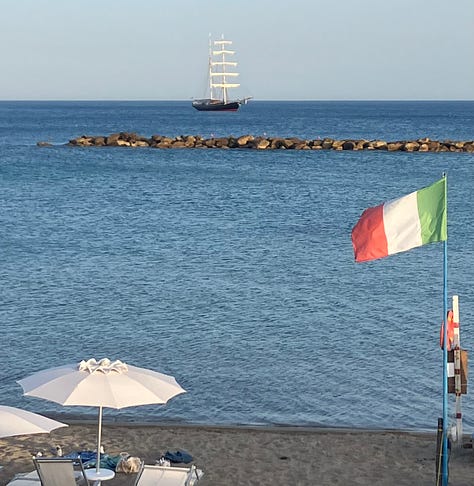
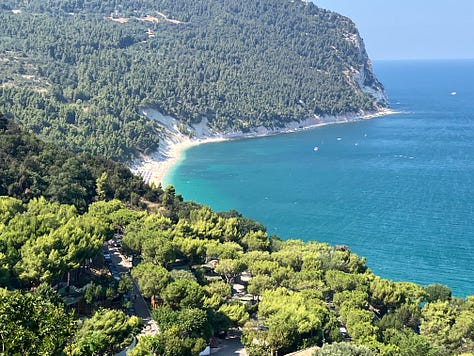
Cultural heritage
The other touchstone is Italy’s almost impossibly rich cultural heritage. (How could so much human endeavour have occurred in one area and also remain so well preserved?) Historical treasures of every kind, the product of the intermingling of many cultures over millennia and of religious and lay patronage of the arts, are hallmarks of a country that often seems like a gigantic, living museum. Visitors want to experience this cultural history and flock in droves to witness it. It is one reason why tourism is such an important aspect of the Italian economy. And because Italians grow up in this environment, it is understandable that many look backward in time and associate their identity to this preserved heritage.

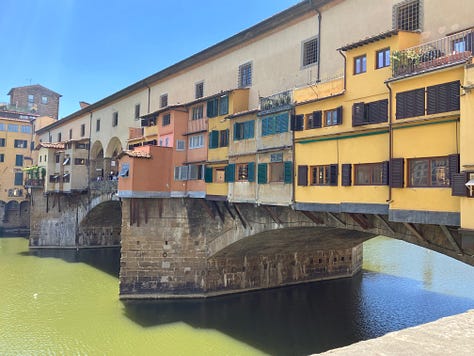
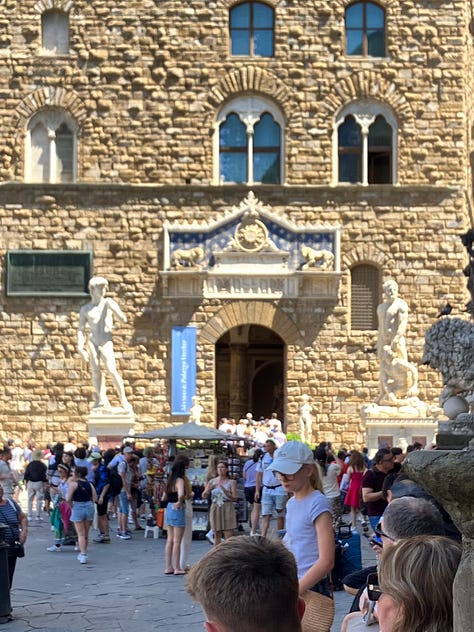
But it is equally important to look forward, to renew, to innovate. Without progress, stagnation is the inevitable result. As Italy deals with an aging population and perennially out-of-reach but vital political reforms, it tries to make the most of its assets. And it does well in some areas. In other areas, entrepreneurs and creative thinkers struggle with the challenges of antiquated regulations, resistance to change and sometimes limited access to capital. Some successful Italian companies make a splash on the world's stage and soon become the targets of foreign acquisition.
European politics
Despite all the positive humanism in Italy, fundamental issues in Italian society require attention. Examples include youth unemployment, judicial reform, discrimination and insufficient gender equity. The macro view is so complex that I cannot adequately describe it. What’s clear is that political will is required to enable progress. Citizens, too, may need to sacrifice some things for the greater good. In the meantime, people focus on what they can control. They manage with hard work and the art of “arrangiarsi,” inventively finding ways to get by.
On the international stage, Italy proudly remains a key member of the European Union and of NATO. Like so many other countries in the EU, it is constantly exploring what aspects of itself it must protect (because of uniqueness, national identity or cultural significance), and what aspects rightly belong in the European context. It is a process, constantly morphing; forever in flux.
Personal experiences
Even keeping all this in mind, what remains most tangible to a traveller are personal experiences. The moments that are memorable are interactions with people on the street or on a train or in a restaurant. All I can say is how delightful it was to immerse myself in the language and culture of the land where I was born, and to revel, sometimes mouth agape, at the historical and geographic wonders of the boot in the Mediterranean.
It was equally delightful to watch my parents’ ability to rise to the challenge of the voyage and continue to grow. Even at their age.
~~~~~~~~~~~
Rather than try to sum up in one post an experience that was so nuanced and complex, I think it would be easier to have a dialogue and answer any questions you may have. I would be happy to exchange views. Leave a comment here or join the chat (link further down).
I’m also adding some more of my favourite photos from the last few weeks. Sometimes pictures tell a story.
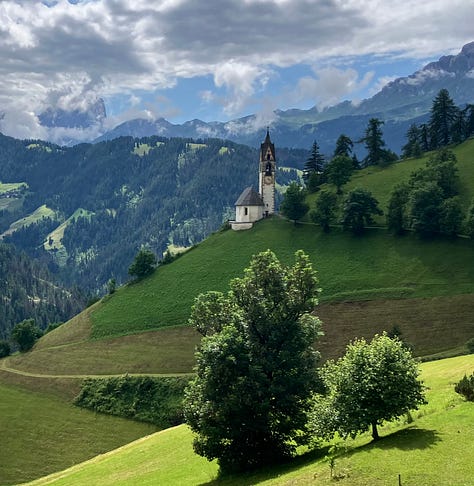

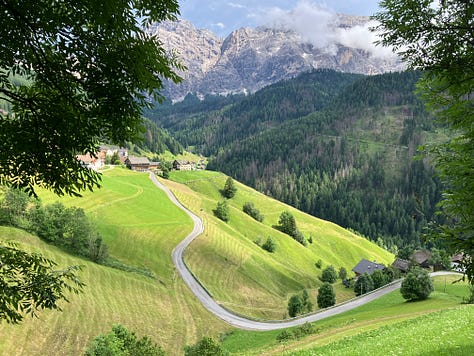
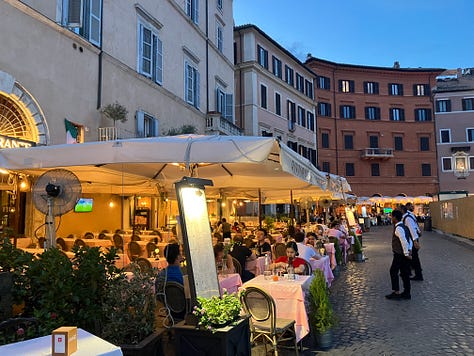
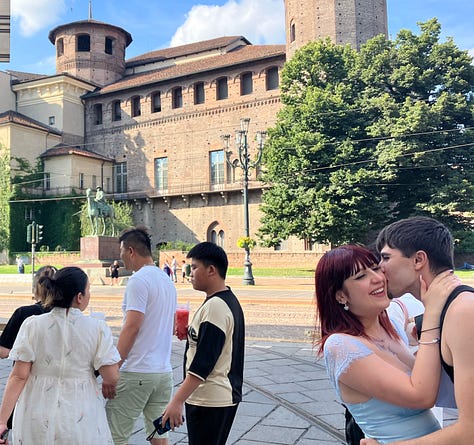

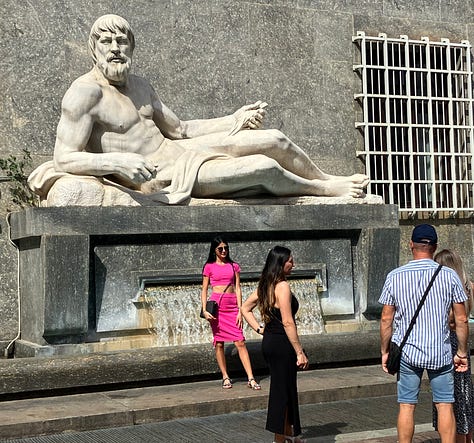
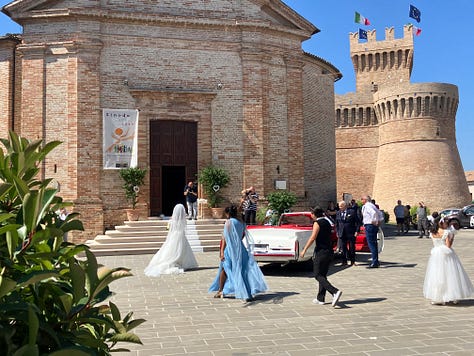



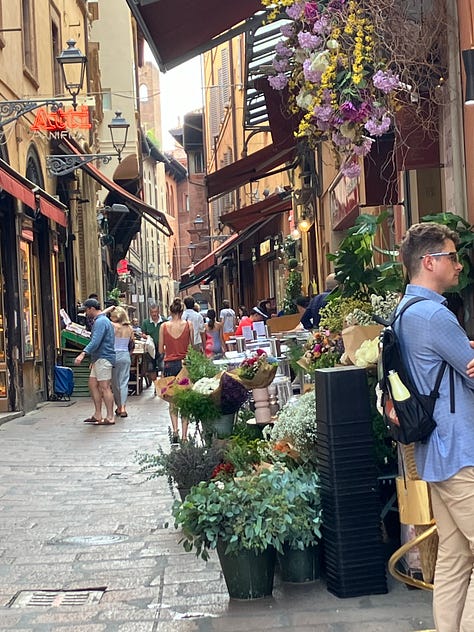
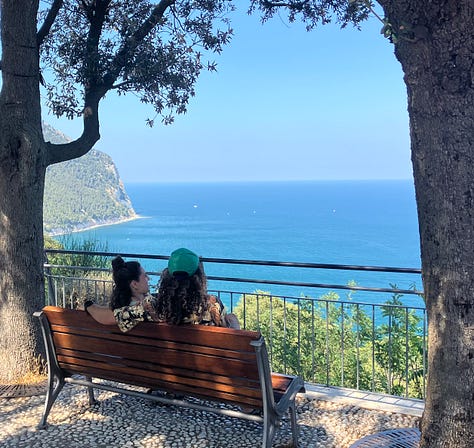

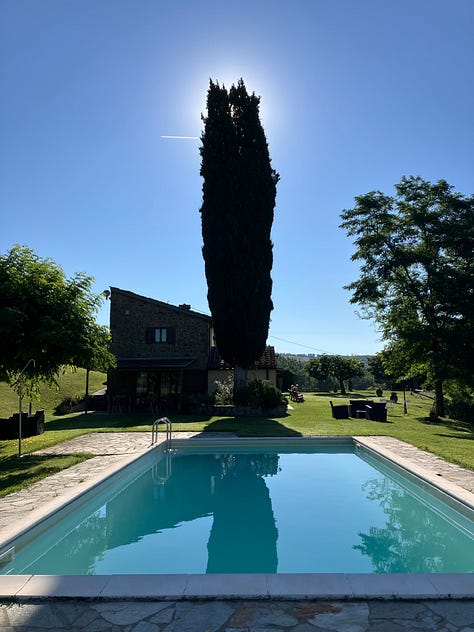
If you’d like to sample my previous writings, they are accessible on the home page, here.
My quick sketch this week is of a residence in the Marche region.
Until next time,
-Renato.





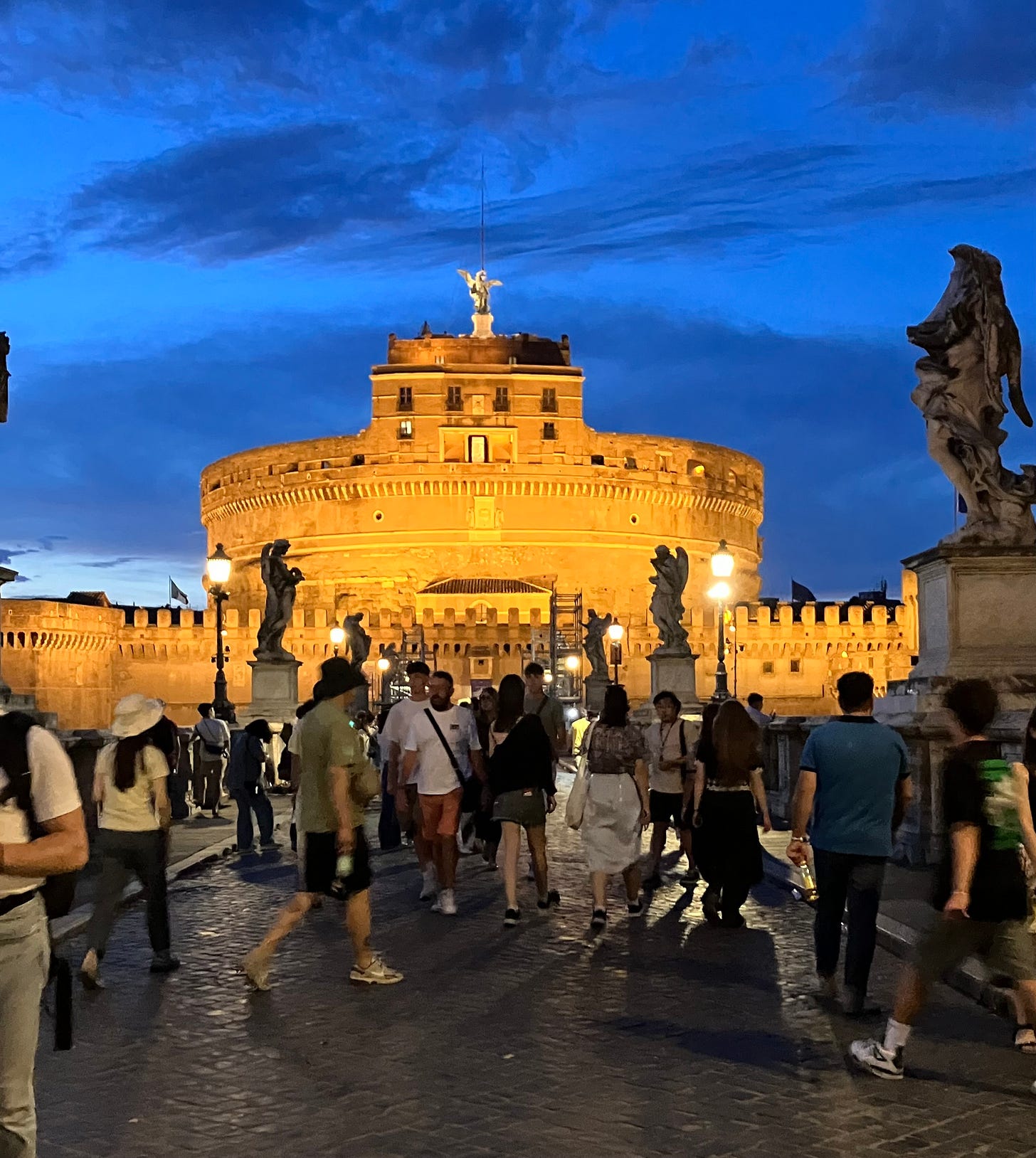
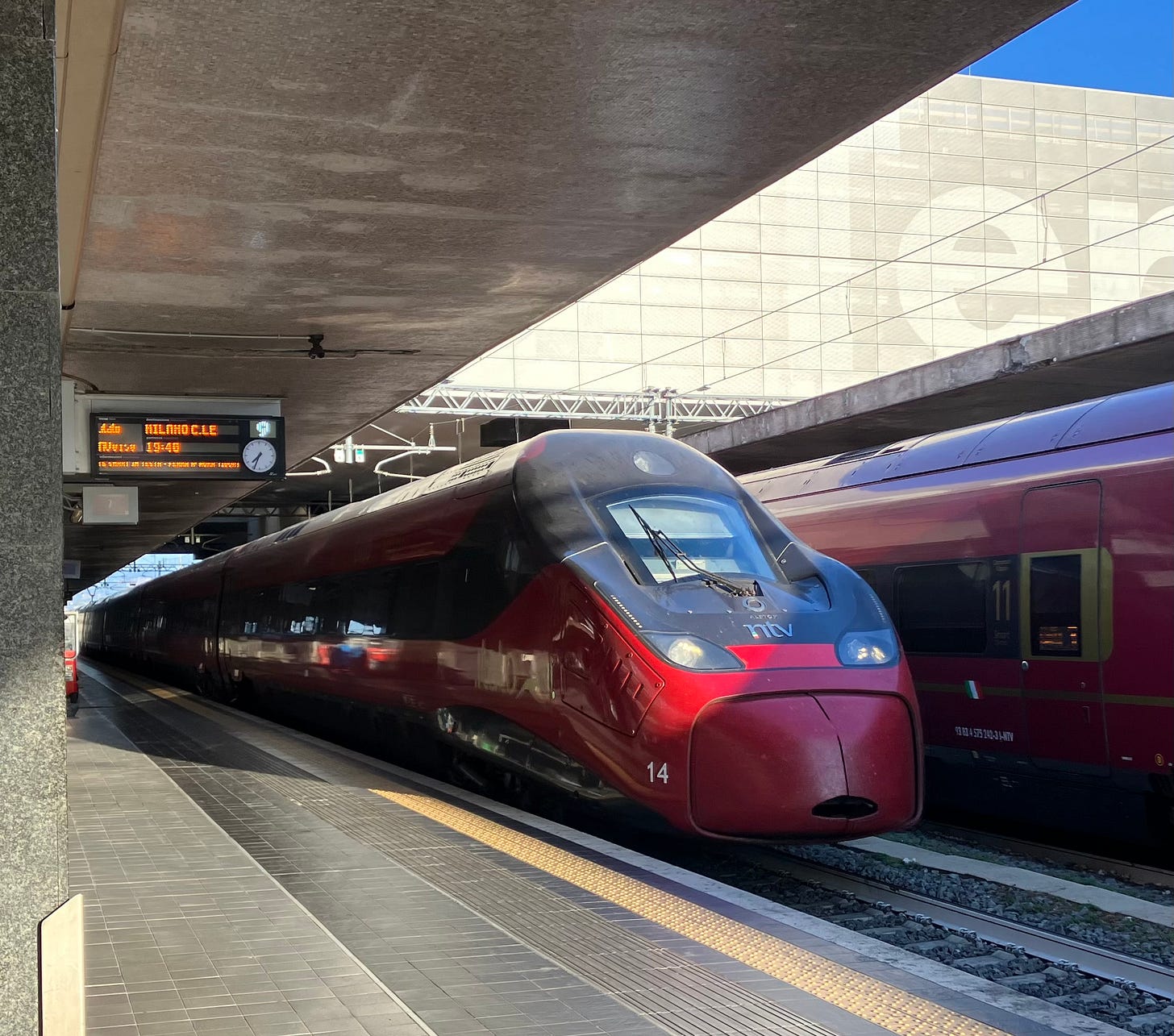

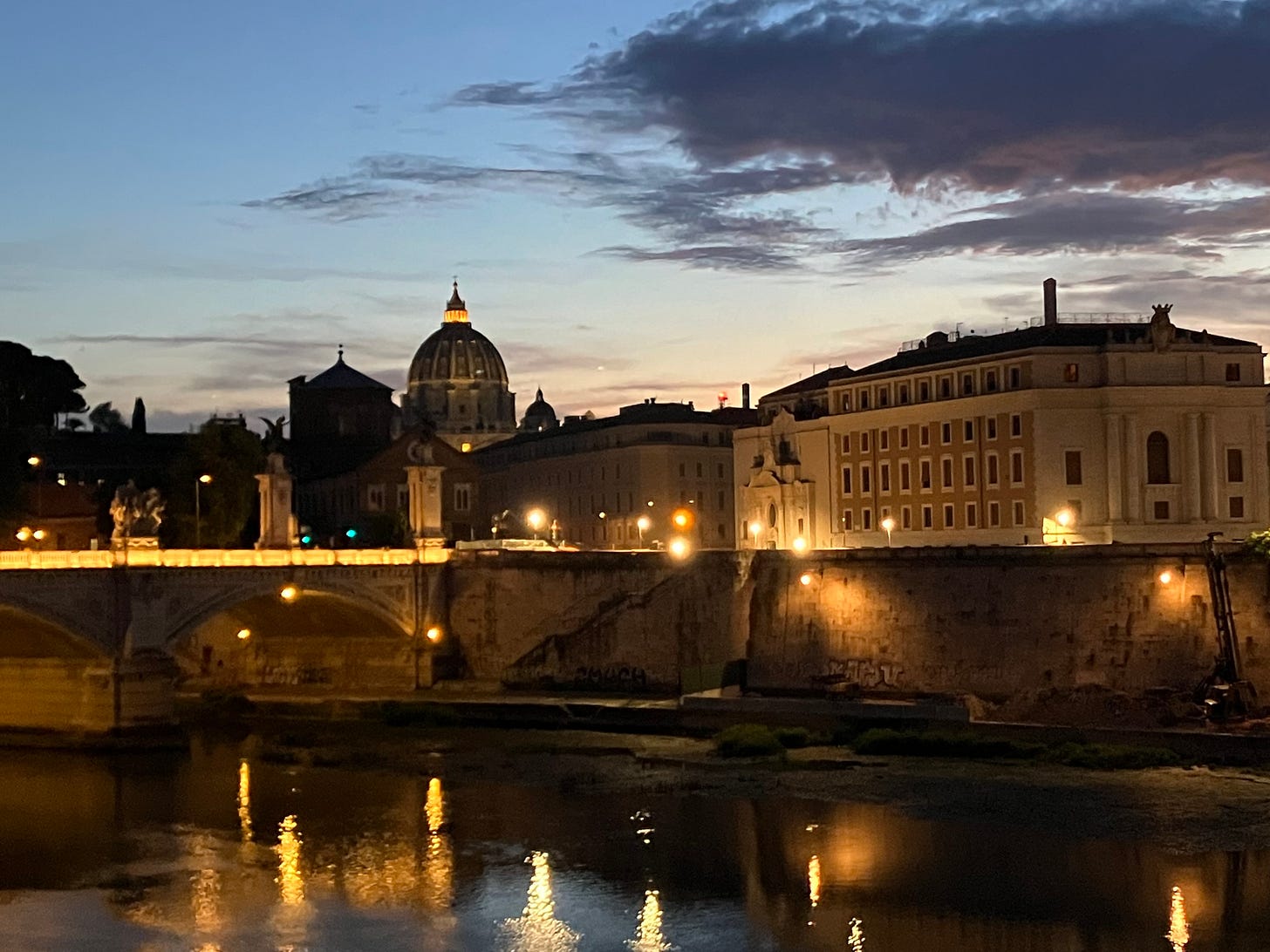

I only made it to Italy once and hope to return. Your photos and post make that desire even stronger!